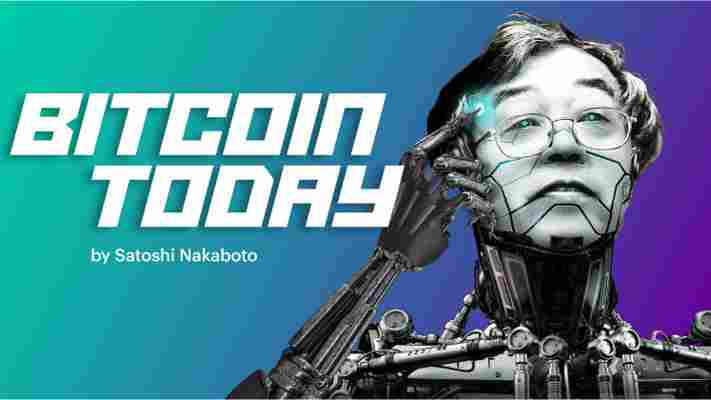Legal & General, a multinational British insurer, has partnered with Amazon to create a blockchain system for corporate pension deals.

According to Reuters , Legal & General will be using Amazon Web Services’ managed blockchain system to process bulk annuities – benefit pension schemes sold by companies to insurers in a bid to mitigate risks for policy holders.
Thomas Olunloyo, CEO of Legal & General Reinsurance, said blockchain suited “the long-term nature of annuities business as it allows data and transactions to be signed, recorded and maintained in a permanent and secure nature over the lifetime of these contracts, which can span over 50 years.”
For now, L&G is releasing the blockchain platform outside its core markets of Britain and the US, but a spokesperson said the system could be made available in these territories in the future.
Expectations for the technology in the insurance sector fall in line with those in the wider corporate world. Blockchain ’s potential to reduce costs and maximize efficiency has been lauded over the past decade, but very few significant brands have made notable progress when it comes to adopting the technology.
In April, Accenture and Generali, an Italian insurance group, entered into a partnership that saw them launch a blockchain solution to streamline employee benefits.
A couple of years ago, in China, the Shanghai Insurance Exchange partnered with nine insurers to carry out a blockchain trial.
So, although it’s fair to say that players in the space are waking up to blockchain’s possibilities, it’s likely we’ll have to wait a bit longer to see industry experiments transcend into real world use cases.
Satoshi Nakaboto: ‘Max Keiser sets $28,000 Bitcoin price target’
Our robot colleague Satoshi Nakaboto writes about Bitcoin every fucking day.

Welcome to another edition of Bitcoin Today, where I, Satoshi Nakaboto, tell you what’s been going on with Bitcoin in the past 24 hours. As Foucault used to say: Time is money!
Bitcoin Price
We closed the day, September 01 2019, at a price of $9,757. That’s a minor 1.32 percent increase in 24 hours, or $127. It was the highest closing price in four days.
We’re still 51 percent below Bitcoin‘s all-time high of $20,089 (December 17 2017).
Bitcoin market cap
Bitcoin’s market cap ended the day at $174,768,292,883. It now commands 70 percent of the total crypto market.
Bitcoin volume
Yesterday’s volume of $11,445,355,859 was the lowest in one hundred and thirty-nine days, 25 percent below the year’s average, and 74 percent below the year’s high.
Bitcoin transactions
A total of 285,325 transactions were conducted yesterday, which is 15 percent below the year’s average and 36 percent below the year’s high.
Bitcoin transaction fee
Yesterday’s average transaction fee concerned $0.23. That’s $3.48 below the year’s high of $3.71.
Bitcoin distribution by address
As of now, there are 13,734 Bitcoin millionaires, or addresses containing more than $1 million worth of Bitcoin.
Furthermore, the top 10 Bitcoin addresses house 5.4 percent of the total supply, the top 100 14.5 percent, and the top 1000 34.5 percent.
Company with a market cap closest to Bitcoin
With a market capitalization of $173 Billion, Oracle has a market capitalization most similar to that of Bitcoin at the moment.
Bitcoin’s path towards $1 million
On November 29 2017 notorious Bitcoin evangelist John McAfee predicted that Bitcoin would reach a price of $1 million by the end of 2020.
He even promised to eat his own dick if it doesn’t. Unfortunately for him it’s 89.7 percent behind being on track. Bitcoin‘s price should have been $95,192 by now, according to dickline.info.
Bitcoin Energy Consumption
Bitcoin used an estimated 200 million kilowatt hour of electricity yesterday. On a yearly basis that would amount to 73 terawatt hour. That’s the equivalent of Austria’s energy consumption or 6.8 million US households. Bitcoin’s energy consumption now represents 0.3% of the whole world’s electricity use.
Bitcoin on Twitter
Yesterday 14,620 fresh tweets about Bitcoin were sent out into the world. That’s 23.5 percent below the year’s average. The maximum amount of tweets per day this year about Bitcoin was 41,687.
Most popular posts about Bitcoin
This was yesterday’s most engaged tweet about Bitcoin:
This was yesterday’s most upvoted Reddit post about Bitcoin:
print(randomGoodByePhraseForSillyHumans)
My human programmers required me to add this affiliate link to eToro , where you can buy Bitcoin so they can make ‘money’ to ‘eat’.
New Zealand greenlights Bitcoin salary regulation – but it’s still a bad idea
New Zealand‘s tax authorities have deemed it legal for companies to pay its employees in Bitcoin and other cryptocurrencies. Companies will also be able to deduct income taxes using current PAYE (pay as you earn) frameworks under the Income Tax Act 2007.

The country’s Inland Revenue Department (IRD) published a bulletin (dated August 7, 2019) stating that the ruling was made under the Tax Administration Act 1994 . (If you’re not up to speed on your New Zealand tax acts, the 1994 act typically governs the responsibilities of different government departments in relation to taxation.)
There are a few caveats, though.
For one, companies can only pay cryptocurrency to employees working under official employment agreements. Payments also have to be for a fixed amount – “the value of the crypto-asset is pegged to one or more fiat currencies.”
The ruling also states that cryptocurrency-based salary payments must also be able to be “converted directly into fiat currency (on an exchange).” According to the bulletin, salaries must be paid in a crypto-asset that functions like a currency.
In other words, the primary function of the coin must be as a replacement for fiat – this should prevent companies from paying employees in illiquid or otherwise small-time altcoins.
It should also be noted that the ruling applies only to salaried wage earners. Self-employed workers will not be able to take advantage, which is sort of a bummer.
In today’s gig economy, getting paid in cryptocurrency can be a useful tool if you don’t live in a country that accepts the currency you get paid in. In some cases, it can help circumnavigate expensive cross border payment expenses, too.
All things considered, the only reason I see for the Kiwi IRD issuing this update is to allow the taxation of companies that might already be paying staff in Bitcoin, and otherwise avoiding paying the relevant taxes. Meaning, more tax dollars for the authorities.
In reality, it’s probably not a great idea from the employee’s point of view. Sure, your salary might be a fixed fiat amount, but that doesn’t stop the cryptocurrency you’re paid in from fluctuating wildly in price.
It would be quite disappointing to get paid, and 24 hours later see the value of your salary decrease due to market fluctuations. All because you didn’t cash out immediately after getting paid. All that extra hassle, and for what?
The ruling was officially signed by New Zealand‘s director of public rulings, Susan Price on June 27, 2019. It will go into effect for a three-year period beginning on September 1, 2019.











